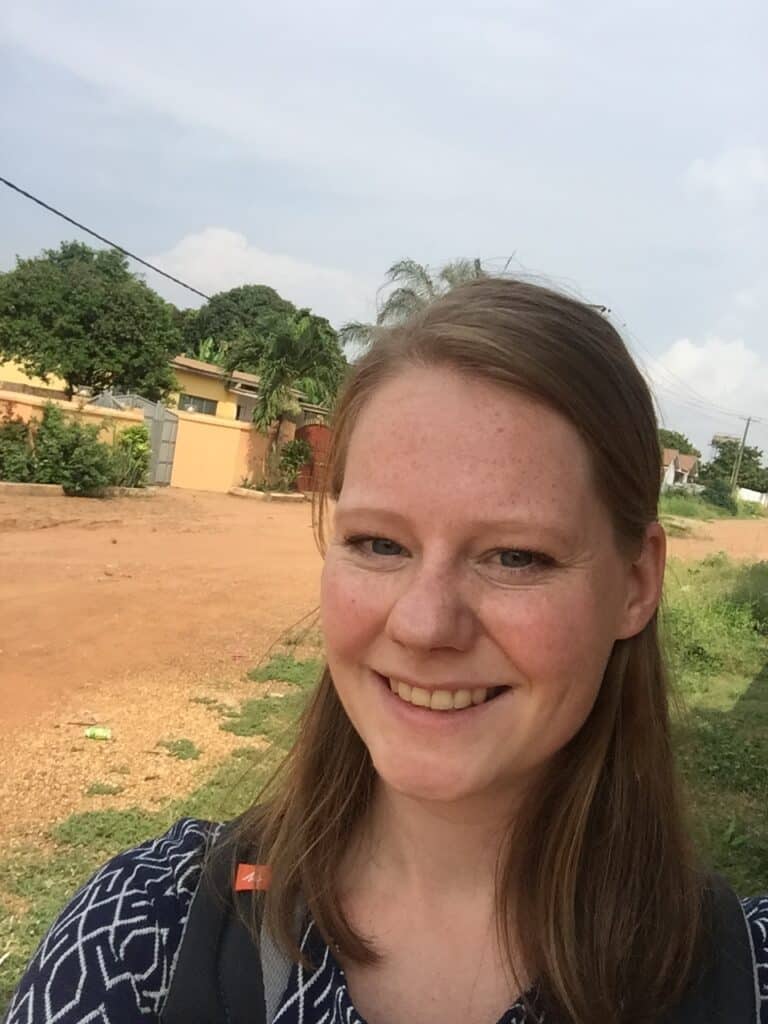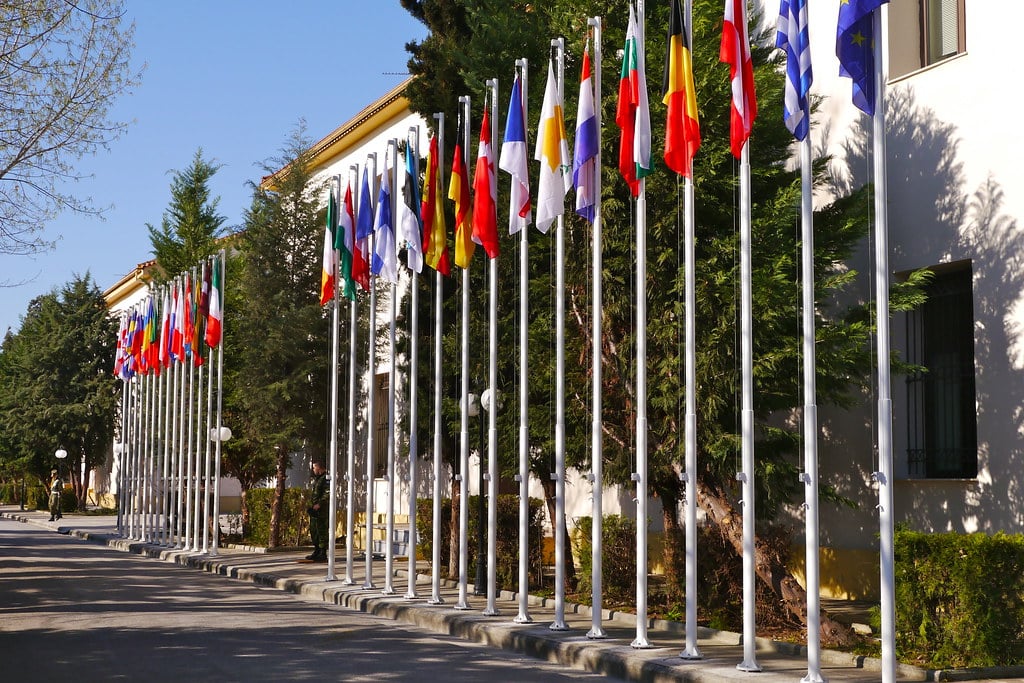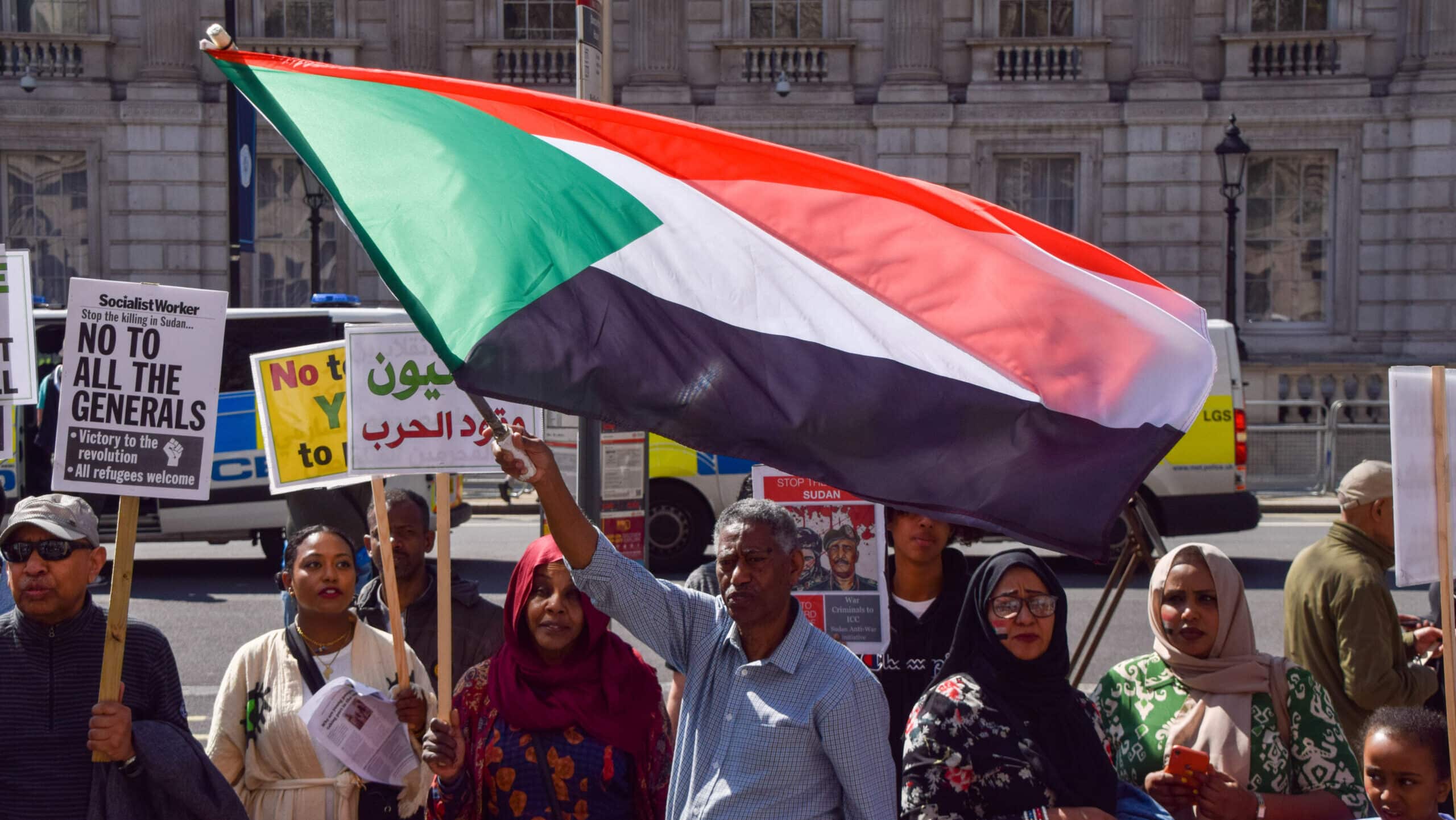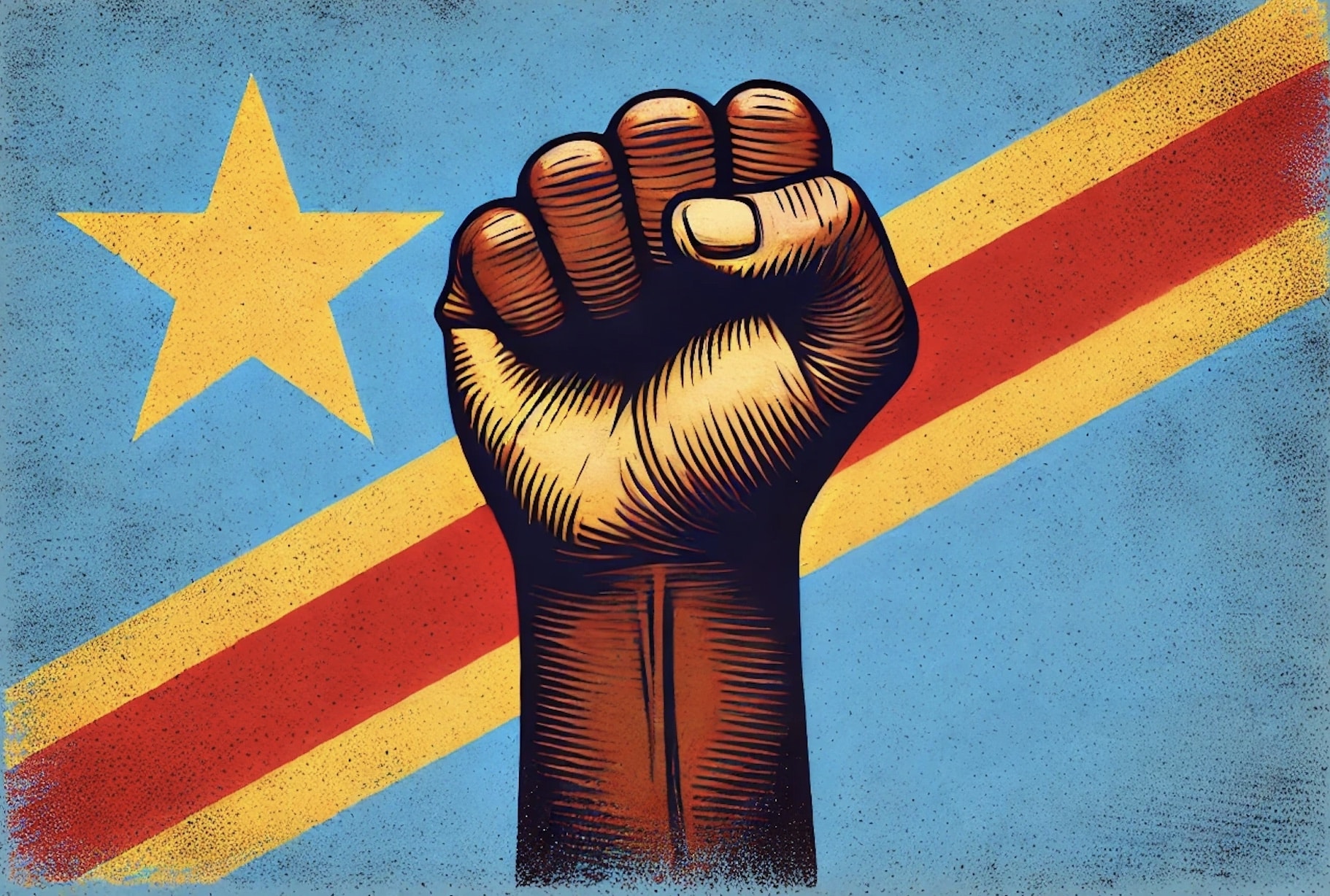The FMS without Anne van der Meer is something many could hardly imagine, yet here it is. After working at the FMS for more than 10 years, Anne is leaving to join Milieudefensie. Many Africa Days, various positions and two major investigations (this page and this page to read) have passed in all these years. Anne talks about her experiences in this interview.
Describe the FMS in three words
Passionate, young, driven
How did you ever join the FMS?
"In 2013, I was writing my thesis on the impact of biofuels on the global south and then I happened to come across a Fair Politics publication by the then Evert Vermeer foundation. On that website, I saw that they were still looking for interns. That seemed like a lot of fun and it tied in with what I was already doing so I tried that then. On the day the FMS was set up, I had my job interview. And a little later I was able to start and didn't leave. My thesis finished but quite a bit later than planned (and on a different topic).''
What are you most proud of when you think back on all your work at the FMS?
"Hmm... I've done so many different things. But then I think my first research on migration. That one actually came too soon. The study was launched in February 2020 and three weeks later the country went on lockdown because of corona. As a result, nobody was talking about migration anymore and we didn't really have a chance to highlight it properly. But if you look at how migration is being talked about now, it fits well with our recommendations from the study. Then you can see that the research has been very relevant."
"Our study on migration actually came too soon"
What made work so enjoyable for you all these years?
"The variety and the politics. In a political environment, there are days when you want to work on something, but suddenly something comes up that throws your whole schedule upside down. I really like that unexpectedness in the days. Besides, you have a lot of variety in the themes you work on and you get the freedom to choose what you focus on. Sometimes you go along with the issues of the day, while on other days you have more time to explore something in more depth. I really enjoy that."
What will you miss most about the FMS
"I think the atmosphere. Having lunch together and having drinks together. The contact with the Labour Party, and sometimes the nagging at the party. On the one hand being happy how close we are to the party, but on the other hand being very happy that there is enough distance to withdraw from it sometimes. But most of all I'm just going to miss the people, both within the FMS and at the party office."
What is the biggest lesson you have learnt in your 10 years at the FMS
"What has stayed with me most is one of the Africa days, I believe my last one. In that last week, you are only concerned with details. On Friday at the end of the day, I really thought 'I don't know any more' because there were so many loose ends, but I didn't have the time to bother with that anymore. I had a bit of a stomach ache the next morning thinking about all those loose ends, because what if it all went wrong. At the end of the day, our director Arjen came to me and said, "Well, it went so well, I don't think there were any loose ends at all". From that, I learned that it is important to have the right people around you. If you can rely on that, everything often works out and you don't need to have everything worked out perfectly in detail."
What is the biggest change you have seen regarding Development in the time you have worked at the FMS?
"That policy coherence for development (or ensuring that other policies of the Dutch government do not undermine development policy, ed.), terrible as that term is, is starting to become quite well known. In 2013, looking at the impact of Dutch tax policy on developing countries, the term policy coherence started to become a bit familiar. You then started to see step by step that more and more people were looking at the impact of Dutch policies on countries elsewhere. If you now see that a whole debate on policy coherence is on the agenda next week, you see that within the whole development committee in the Lower House, there is much more attention to the idea of policy coherence. Outside of that, there is still a lot to be gained, but even there this idea is becoming more widely known."
What do you think is the biggest challenge on this topic in the coming years?
"That the idea of policy coherence is not a development thing, but that it comes back within all policy themes. Not everything should always revolve around the Dutch interest. The whole cabinet should think about fulfilling the agreements we made in Paris, for instance. Or, for instance, feminist foreign policy. This is not something that can be left to Foreign Affairs alone but should be implemented much more broadly. You have so many broad themes that should actually land within all ministries. I am not very positive about that yet. I think that is the biggest challenge, to make big themes like policy coherence or, for example, the SDGs known within all ministries and make sure they start working on them."
"You have so many broad themes that should actually land within all ministries."
What exactly will you be doing at Environmental Defence?
"I am senior content officer on international energy transition. Milieudefensie is one of the partners in the Fair Green Global (FGG) alliance. Within FGG, we work to promote fair and green trade chains. Here, we mainly focus on better corporate behaviour, better international trade and investment, and better financial and tax systems. Within this, I will focus on the specific themes of trade and fossil. Together with many partners and also focused on the impact of our actions on the global south. So this ties in nicely with what I was also doing within the FMS."
In what way will you still be involved in the Labour Party, as you are not leaving completely
"True, I am chair of the PES delegation and I am on the committee compiling the election programme for the European elections. In both roles, I bring the experiences I am now gaining at Environmental Defence, but I try to fill them as independently as possible from my job."
Development and Anne can't really be separated anymore. Jarne will now take over from you. What would you like to give him?
"Make choices. Try to be very clear about what you want to go for and what you think is most important. Look for everything opportunities you have, but also sometimes choose not to do something and leave it to others.





